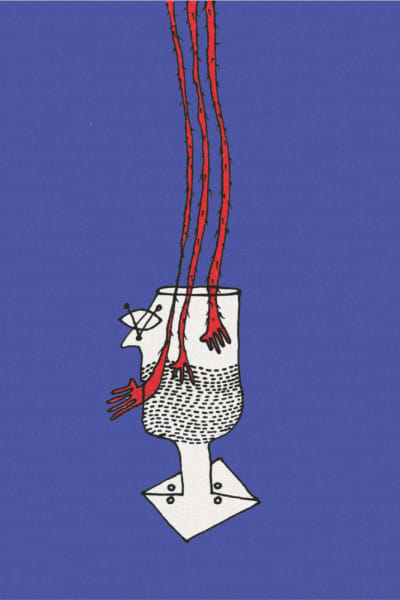A Fiction of Myself

I used to get beaten up in childhood by my elder sister, a lot. My mother would sometimes wonder loudly why I always got beaten up, and why I couldn't save myself. I never replied. I would carry those marks on my body to school. Most boys there jeered at me too—mocked and ridiculed me for not being "a boy". They called me "half-ladies". As I grew up, the epithets evolved too—from "half-ladies" to "full-ladies" to "ladies" and eventually "hijra".
I did protest. Sometimes.
I got admitted to a big boys' school in the third standard. It could have been a new start, but as fate would have it, my docile nature, body language and gestures soon became the butt of ridicule. I was never a 'man' in their view. I didn't have any masculine traits as per societal norms. If I protested, I would inevitably get beaten up.
Every time I was humiliated and scorned, I tried engaging them in conversation, "Why do you all call me a 'girl'?" But they never cared. I have questioned myself time and again, and wondered if the problem was with me. Was I made from a different mould? Never into sports, always spending time reading, speaking softly, not behaving like any other average boy of my age—was it really true that I wasn't a boy?
Amidst these confusing thoughts, I finished school and entered college. Studying in a co-education college, I made quite a few female friends, with whom I always hung out. This is not to say that I did not make male friends; I had some, but I could not interact with most of them for the kind of language they used and the thoughts they nurtured. My friendships earned me another title in college –'Apu' (Sister). Some said I was a playboy, some said I was a snob, while others didn't miss the chance to proclaim, "Wasn't it obvious that I would befriend girls? After all, birds of the same feather always flock together…"
And thus, my college life was ruined too. I hardly went to college thereafter. There was no means by which I could face the reality, digest those venomous slurs. Anxious and depressed, I questioned myself all the time—why was it that I felt bad upon being called 'a girl'? What exactly made one a 'man' anyway?
The distinction that society has forged between feminine behaviour and masculine behaviour seems quite frivolous and arbitrary to me. Can we really ascribe behaviour to gender? Just because a considerable number of men behave in a certain way, do others have to follow too?
Once, in order to prove my masculinity, I lit a cigarette in front of a group of boys. I soon started coughing and could hear that they were making fun of me. They broke into laughter and commented that even women can puff cigarettes these days!
My physical appearance has also been the grounds of ridicule many times. I have been advised to put on weight and walk like a man, shoulders straight and not drooping.
My gestures, ways of walking and dressing generate a visible discomfort and repulse among people. Even my family members are vexed with me. Nothing about me is 'manly'; some say they are not 'feminine' either. This is when some started saying I am like hijras.
Is the confusion in them, rather than in me, I wonder?
It has taken me a long time, but I am finally at peace with who I am. I am not intimidated like I used to be. I don't feel the need to prove my masculinity any longer. I do not feel the necessity to vindicate my gender or sexual orientation to the world and society. I am myself. I am not like anybody else.
I had uploaded a picture of me wearing a flower band on my head. Many jeered and mocked me in characteristic fashion, but they do not affect me anymore. Over time, I have found people who are supportive of me; I have made many friends who themselves are gender non-conforming.
Lest you think it's a happily-ever-after, it's not. Even today, I have to face questions about my way of being. Trying to avoid them does not always succeed. People expect to find out why am I "like this". Sometimes I think I should reply, but I don't. I don't feel like it.
When will people stop throwing their queries towards me? How long will this continue?
At some point in the future, people will forego problematic politics and accept people the way they are. I spend my days looking forward to such a future.
Tanveer Anoy is an activist and writer.

 For all latest news, follow The Daily Star's Google News channel.
For all latest news, follow The Daily Star's Google News channel. 



Comments